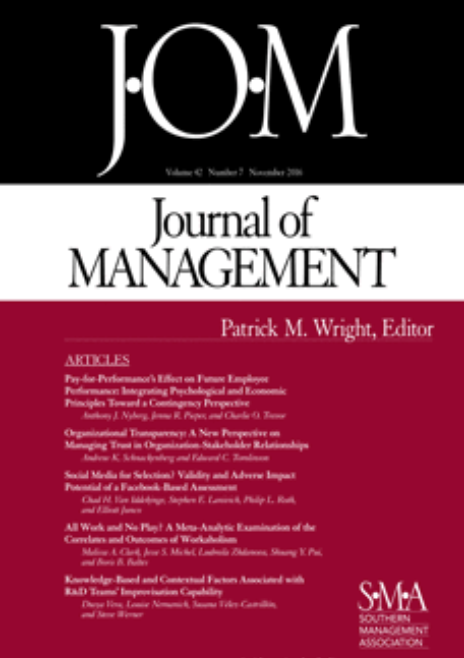Change the Referent? A Meta-Analytic Investigation of Direct and Referent-Shift Consensus Models for Organizational Climate
-
 ABSTRACT Based on earlier taxonomies of group composition models, aggregating data from individual-level responses to operationalize group-level constructs is a common aspect of management research. The present study contributes to the literature on group composition models by quantitatively integrating the climate literature via meta-analysis to determine which of the two most common methods of aggregation, direct consensus and referent-shift consensus, is the stronger predictor of group-level outcomes. We found that referent-shift consensus was a stronger predictor of job performance and customer service performance than direct consensus. However, we found that direct consensus was a stronger predictor of job attitudes than referent-shift consensus. We also found that climate-performance relationships were moderated by aggregation method of the performance criterion. The implications of these findings for advancing multi-level theory and research are discussed.
ABSTRACT Based on earlier taxonomies of group composition models, aggregating data from individual-level responses to operationalize group-level constructs is a common aspect of management research. The present study contributes to the literature on group composition models by quantitatively integrating the climate literature via meta-analysis to determine which of the two most common methods of aggregation, direct consensus and referent-shift consensus, is the stronger predictor of group-level outcomes. We found that referent-shift consensus was a stronger predictor of job performance and customer service performance than direct consensus. However, we found that direct consensus was a stronger predictor of job attitudes than referent-shift consensus. We also found that climate-performance relationships were moderated by aggregation method of the performance criterion. The implications of these findings for advancing multi-level theory and research are discussed.